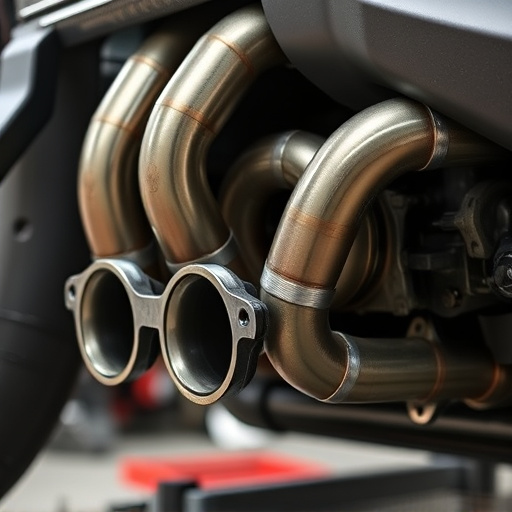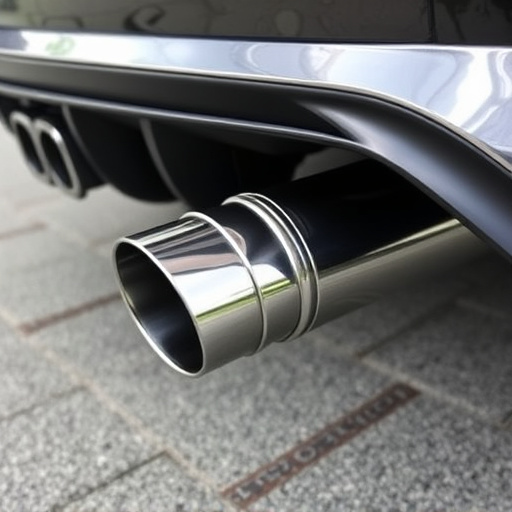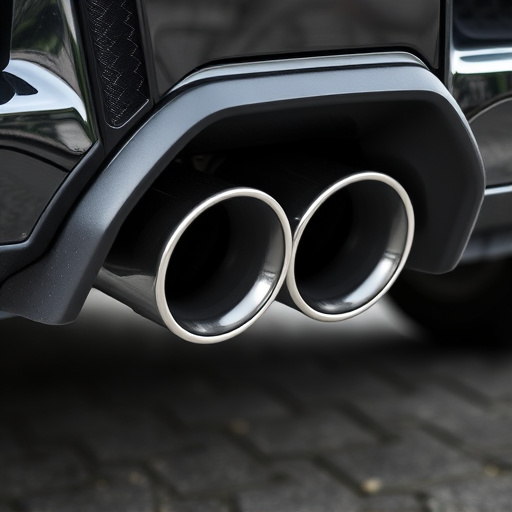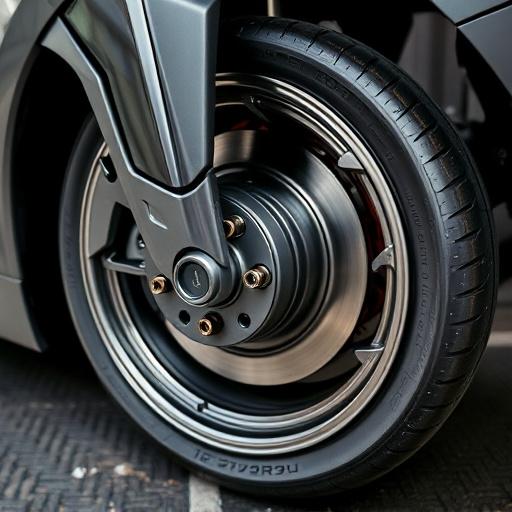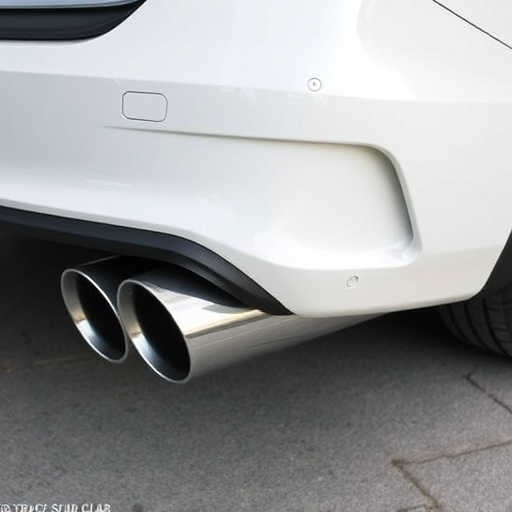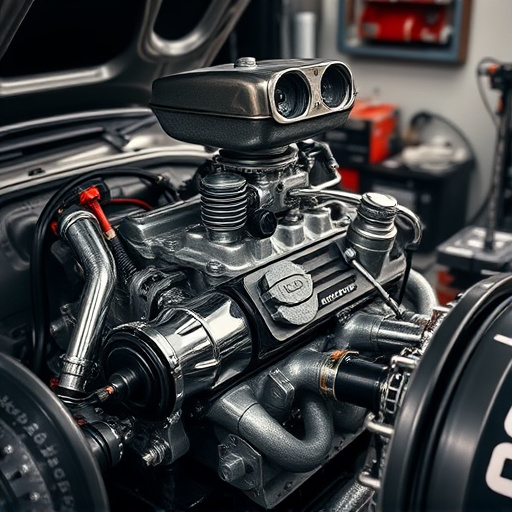ECU tuning is a powerful method to enhance modern vehicle engines' performance and efficiency. For vehicles with aftermarket forced induction systems like turbochargers or superchargers, precise ECU remapping ensures stability and optimal performance through custom mapping and dynamic adjustment algorithms that optimize fuel injection and ignition timing in real-time. Advanced techniques integrate intake parts, exhaust systems, and catback setups to improve throttle response and drivability, while modern ECU tuning techniques leverage sophisticated algorithms for precise adjustments.
“ECU tuning is a game-changer in enhancing engine performance, especially with aftermarket forced induction (FI) systems. This article delves into the intricate world of Engine Control Units (ECUs), exploring their fundamental role in managing modern engines. We’ll navigate the challenges of integrating FI systems and discuss advanced techniques to optimize performance. By understanding ECU tuning, car enthusiasts can unlock the full potential of their modified vehicles, achieving superior speed and efficiency.”
- Understanding ECU Tuning: The Basics of Engine Control Units
- Integrating Aftermarket Forced Induction Systems: Challenges and Solutions
- Optimizing Performance: Advanced Techniques for ECU Tuning with FI Systems
Understanding ECU Tuning: The Basics of Engine Control Units
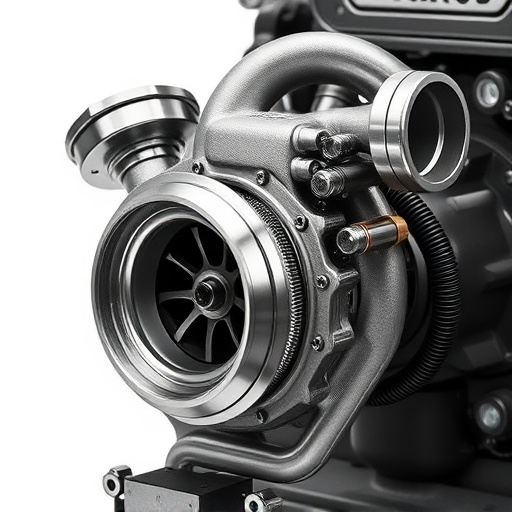
Engine Control Units (ECUs) are the brain of modern vehicle engines, managing a multitude of functions to ensure optimal performance and efficiency. ECU tuning is the process of fine-tuning these control units to unleash hidden potential in an engine. It involves adjusting various parameters within the ECU’s software to change how the engine performs under different conditions. This can include altering fuel injection, ignition timing, and even accessing advanced features like variable valve timing. By tweaking these settings, enthusiasts can significantly boost power output, improve torque, and enhance overall driving dynamics.
In vehicles equipped with aftermarket forced induction systems, such as turbochargers or superchargers, ECU tuning becomes an even more critical component. These high-performance modifications drastically change the engine’s airflow and compression ratios, requiring precise control to maintain stability and efficiency. Tuners can remap the ECU to account for these changes, ensuring the engine remains balanced and delivers peak performance. This often involves recalibrating boost pressure, optimizing air-fuel ratios, and fine-tuning timing to create a seamless blend of power and drivability, complementing upgrades like high-flow performance exhaust systems, advanced brake pads, and high-performance air filter kits.
Integrating Aftermarket Forced Induction Systems: Challenges and Solutions
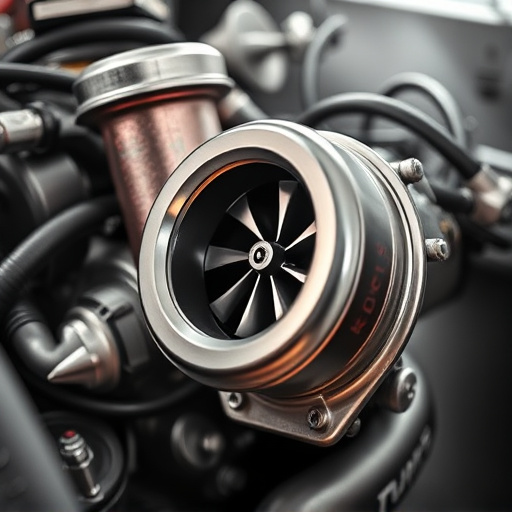
Integrating aftermarket forced induction systems into a vehicle’s ecosystem presents unique challenges for ECU tuning. These systems, such as turbochargers or superchargers, significantly alter the car’s air-fuel mixture and performance characteristics. ECU tuning experts must carefully calibrate these modifications to ensure optimal efficiency and reliability. One key challenge is maintaining precise control over boost pressure, which can be influenced by various factors including temperature, altitude, and engine load.
Advanced tuning techniques, aided by modern ECU technology, offer solutions to these challenges. Custom mapping and dynamic adjustment algorithms allow for real-time adjustments to fuel injection, ignition timing, and other critical parameters. Additionally, integrating coilover kits and upgrading exhaust systems can further enhance performance, providing smoother power delivery and improved throttle response. Even brake components play a role in overall vehicle dynamics, contributing to better control during acceleration with forced induction.
Optimizing Performance: Advanced Techniques for ECU Tuning with FI Systems
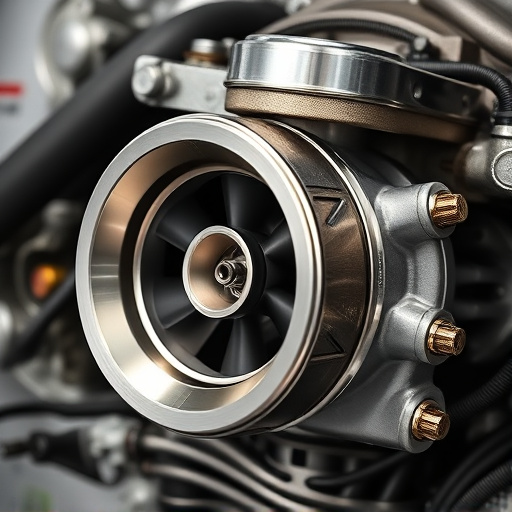
Optimizing Performance through ECU Tuning with Forced Induction Systems has reached new heights thanks to advanced techniques and technologies. By meticulously fine-tuning Electronic Control Units (ECUs), performance enthusiasts can unlock hidden power within their vehicles, especially when equipped with aftermarket forced induction systems. This process involves a deep understanding of engine dynamics, allowing tuners to calibrate fuel injection, ignition timing, and air-fuel ratio for maximum efficiency and horsepower gains.
The integration of intake components, muffler tips, and cat back exhaust systems plays a pivotal role in enhancing performance. ECU tuning optimizes the interaction between these parts, ensuring optimal air flow and efficient combustion. This precise control leads to not just increased power but also improved throttle response and drivability. Modern ECU tuning techniques leverage sophisticated algorithms and real-time data analysis to make these adjustments, resulting in a symphony of enhanced performance that resonates on both the track and the road.
ECU tuning, especially when paired with aftermarket forced induction systems, offers a powerful way to enhance vehicle performance. By understanding the basics of Engine Control Units and employing advanced techniques for optimization, enthusiasts can unlock hidden potential within their vehicles. Integrating these systems presents challenges, but solutions exist to ensure safe and effective tuning, transforming the driving experience in a truly remarkable manner.









